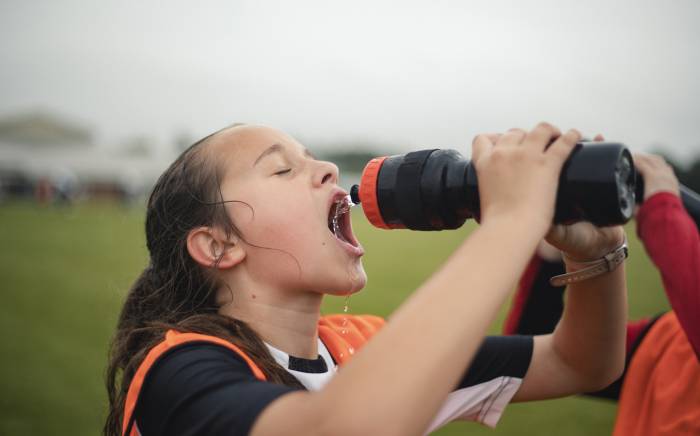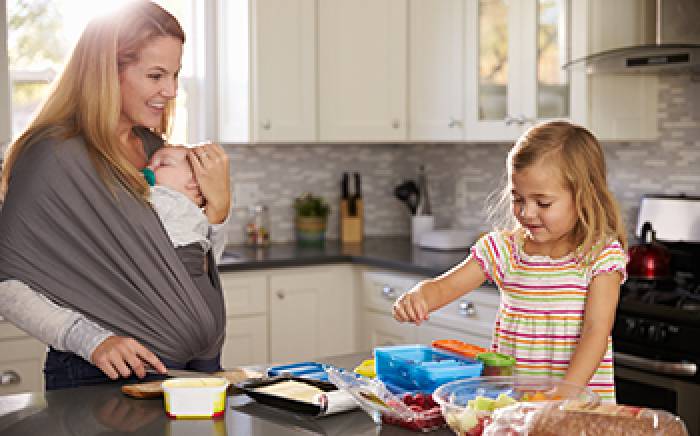So your child tells you she wants to be a vegetarian. Now what? Is it just a phase? Is it safe?
“We’re seeing more kids trying to be vegetarians, particularly teen girls, as sort of a trendy thing,” says Tara Todd, a registered dietitian at St. Louis Children’s Hospital. “Food is the one thing kids at this age can control. Sometimes wanting to be a vegetarian is a phase that passes for some children, while others are more committed to it.”
Todd says vegetarians can achieve a healthy diet as long as it’s carefully planned and balanced, especially for growing bodies.
“It’s OK to be a vegetarian as long as kids choose a healthy substitute for meat and will eat enough fruits and vegetables,” Todd says. “But kids need to fully understand what’s involved with being a good vegetarian. If they’re not doing it well, they should see a dietitian. Children and teens are in a time of growing, and they need balanced nutrition.”
When Todd meets with children, she asks them what kind of vegetarian they want to be and how they plan to fill the voids. For example, if they’re eliminating dairy from their diets, they need to know other ways to get calcium and vitamin D into their diets.
“We lay out what their vitamin and mineral needs are and make sure they’re getting them,” she says.
A vegetarian diet requires finding healthy alternate iron and protein sources.
“The problem with teens is that if they’re not eating meat for protein, they often choose cheese instead,” Todd says. “But cheese is high in saturated fat and calories. Yet when I suggest beans, legumes, nuts, tofu and tempeh for protein, they don’t always like those options.”
Offering a “Happy Medium” Option
Children who become vegetarians because they believe eating meat is cruel to animals are generally more committed to a restricted vegetarian diet. But for those who are following more of a trend or eating less meat for health reasons, Todd tries to steer them toward becoming a “flexitarian.”
“Being a flexitarian is the new big thing where people have a goal of eating less red meat and more plant-based foods each week. This happy medium is often a better option for teens than a strict vegetarian diet. Most teens are not great fruit and vegetable eaters and often have poor diets overall, so until they get used to eating a more plant-based diet, I recommend giving them a multivitamin.”
As a rule of thumb, Todd advices parents to choose a complete vitamin with 100 percent of the RDI (recommended daily intake) of vitamins and minerals for their children.
Adapting As a Family
An additional hurdle when a child decides to become a vegetarian is adapting meals as a family.
“Parents often come to dietitians at wit’s end,” Todd says. “Parents shouldn’t have to make two separate dinners for the family. The key is to be supportive, but don’t let the vegetarian run the show. Teens should help make being a vegetarian easier on the family by buying vegetarian cookbooks and helping to plan and prepare meals. Parents and kids need to meet in the middle and make it easy on the cook. For example, Morningstar Farms® makes a meat substitute to use like ground beef in spaghetti or other recipes that everyone can enjoy.”










